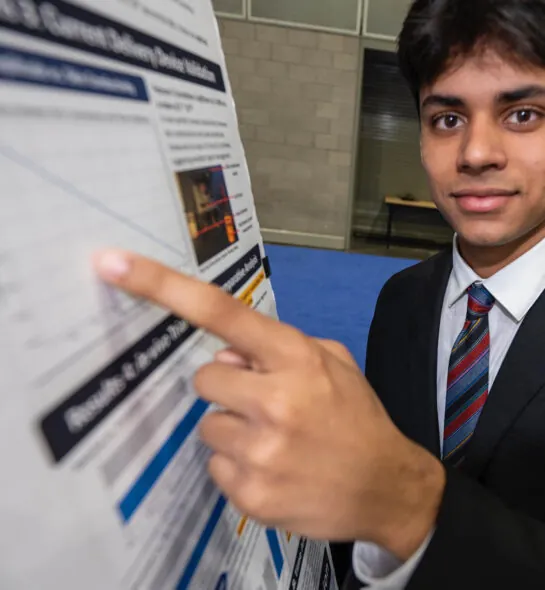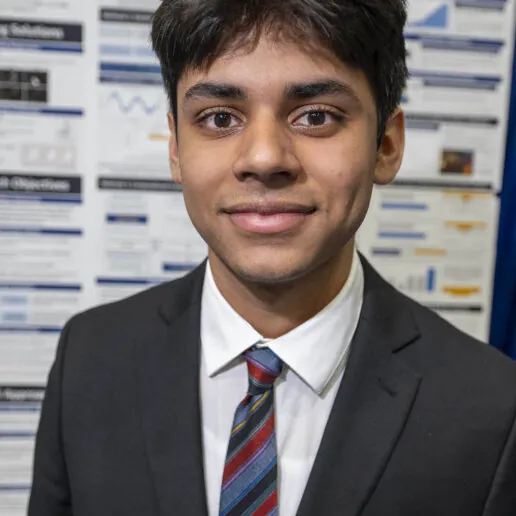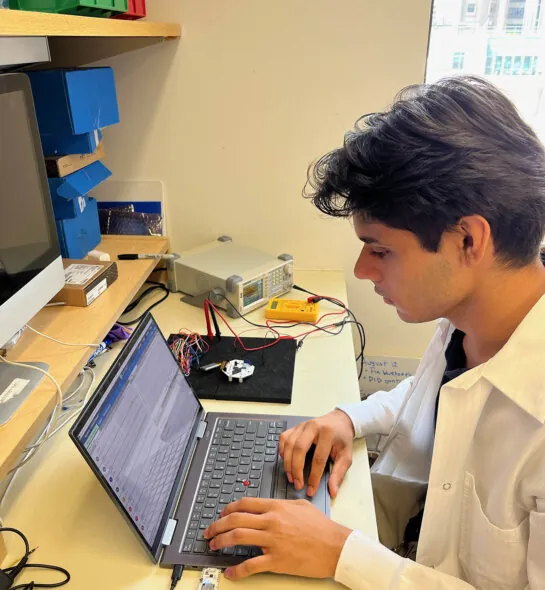Deeper Dive
Gastroparesis, a condition affecting many of my family and friends, is a significant global issue. Gastroparesis occurs when the smooth muscle of the stomach contracts at lower frequencies, causing indigestion, nausea, vomiting, and potentially fatality. It is essential to address this problem with a low-cost, noninvasive, and side-effect-free diagnostic and treatment solution. Gastroparesis is particularly prevalent in regions with lower socioeconomic status, and the solution presented in this work can help large populations manage the disease effectively. Additionally, the computational model in this work also has broadband applications, including optimizing electrical stimulation for deep brain stimulation and post-game recovery for athletes. In my research, I outfitted a biosensing board with computational signal processing. This biosensing board records, transcutaneously, electrical signals from the stomach, allowing for a diagnosis of gastroparesis. Transcutaneous electrical nerve stimulation is a promising solution for treating gastroparesis, but too high intensity can cause skin irritation and discomfort, and too low can be ineffective. I created a computational model that predicted, given a certain pulse, how many nerves in the location are activated, or depolarized. I then automated this simulation to find the minimum intensity pulse that activates 60% of axons–the optimal point.
This project faced numerous challenges, which, when overcome, led to the final product. Initially, I attempted to fabricate my own biosensing board, but the signal quality was far too low, requiring a large pivot of the project’s goal. Furthermore, a large challenge presented itself when trying to integrate the two parts of the computational model–this required knowledge of calculus, and ingenuity. I had to conceptualize how to convert transient current density through a 3-D body to extracellular current.
Managing gastroparesis can be cumbersome for many people. Traditional diagnostics like scintigraphy and manometry are expensive, often inaccessible, and inconvenient for the patient. Traditional therapeutics, such as pharmacotherapy–metoclopramide and erythromycin–or surgery, suffer from limited efficacy or severe side effects. Other diagnostics and treatments lack patient personalization and convenience. This work offers a simple, patient-specific, and side-effect-free method for managing gastroparesis, providing an easy-to-use solution for progressive disease control.



